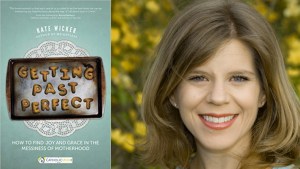Olivia remembers that the topic most often raised in her house was grades: what grade she got in what subject, why a B and not an A this time. So she was always dutiful and accurate, never late. In school, there was the eternal pursuit to be the best, to distinguish herself — otherwise, she wouldn’t meet the expectations. Weaknesses? No one talked about those. For many years she felt that was how life was supposed to be.
“The one who gives so much warmth and presence is often the one who also inflicts a lot of pain,” summarizes Olivia. “The one,” meaning her mother.
Following therapy, Olivia is learning how to set limits. She can also see what her mother’s ambitions and expectations were, and what were her own desires. And even though her mother has a huge heart, as Olivia herself admits, there are many things to discuss. They can still sit down together for coffee and cake, but now it’s different.
A complicated legacy
She gave birth to you, fed you, and raised you … How could you think of her poorly? Tell her she’s wrong, say “no” to her? After all, she’s your mother! But even though we owe them so much, relationships with our mothers are not always what we would like. We dream of a supportive mother who will be with us in moments of success but also failures, who will accept our choices, understand our individuality, with whom we can share all our heart’s dilemmas. Because this is what a mother should be.
Instead, we very often experience rejection, being sheltered or controlled, unfulfilled ambitions and difficulties in showing emotions. Suddenly we find that we bring little from this relationship into adulthood. Bam! — Our ideal of a mother falls.

Read more:
10 Photos that perfectly capture the joy of motherhood
Sometimes this is the moment when we cut the umbilical cord, learn independence, set limits, and take a critical view. Sometimes those are momentary frictions, after which we come to the conclusion that it was just juvenile behavior. But sometimes our optics change for life.
“I always thought I was close with my mom. For most of my life, we practically lived alone, just the two of us, so we relied on each other. Many years later, I see that she is a stranger to me — we don’t know how to talk, and the awareness that she didn’t give me what a mother should give a daughter made me distance myself. It is hard for me to discover that our relationship was actually quite different from what I needed,” says Monika.
Loving in one’s own way
It all begins quite naturally — entering into adulthood, marking your individuality, rebellion. All of a sudden, everyone at home is our enemy, especially her — because she forbids, is overprotective, because she interferes and doesn’t just let us live.
“My young adulthood was our most difficult time. Our relationship cooled down. I felt permanently restricted. Suddenly my mom got very sick; she wasn’t home with us for almost two years. I understood then how much she taught me, how important were those evening quarrels and conversations, how much I really owe her. When she recovered, our relationship changed into pure friendship. It is my most honest friendship,” says Renata.
And what if those relationship difficulties are not just a momentary teenage thing? “My mother made a lot of mistakes, and she apologizes to me to this very day. Sometimes I have a feeling she regrets those things more than I think about them. Would I raise my children the exact same way? Certainly not. But is that the determinant of loving more or less?” asks Joanna. Today her mother is supportive and caring, but also respects her opinion and allows for personal space, though it cost them both a lot.
My mother also had a mother
It’s hard to believe sometimes, but our mothers have a story, just like us. Knowing that perhaps our own mother went through a similar path, and perhaps even a more difficult one, opens us to understanding and acceptance.

Read more:
Getting past Pinterest-envy: A fast take on motherhood with Kate Wicker
“Even though I have to discover many things by myself, I know that my mom also had a mother who taught her — or not — how to be a mother to her children. It doesn’t come from air, so I understand that for her, motherhood was a testing field, especially since she was the oldest of her siblings,” says Monika.
The more mistakes we make, the greater our tolerance of the mistakes of others. It doesn’t mean we have to agree with everything. A healthy relationship requires us to respect our needs. That is why it’s good to say “no,” to indicate that we imagine our life differently, to not agree to emotional blackmail or to meeting overly high expectations. There is nothing wrong with that.
But do not hold on to grudges. Not everything can be changed, and sometimes it’s simply not worth it. We can love our mothers with all the baggage while simultaneously building a life based on our terms and drawing from other sources. And although it is not a perfect solution and there is often a void in our hearts, ultimately it may be the most important lesson we learn from this relationship.
This article was originally published in the Polish Edition of Aleteia.

